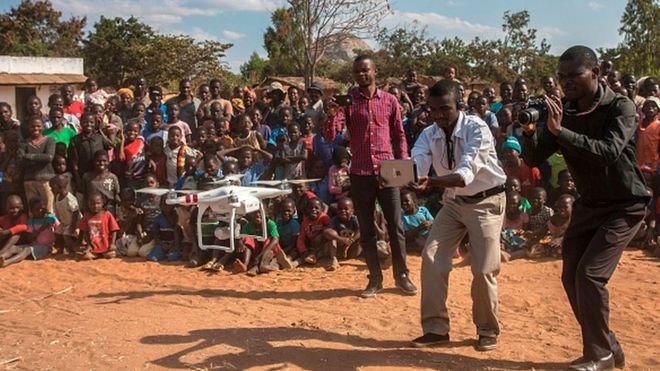Malawi and Unicef launch drone air corridor

Malawi has launched Africa's first
air corridor to test the use of drones, or Unmanned Aerial Vehicles, in
humanitarian missions in partnership with the UN children's agency,
Unicef.
Universities and other partners will also have access to the site.
The project will run until 2018.
Rwanda also launched a commercial drone delivery service last year to deliver medical supplies.
The project, in partnership with US company Zipline, has cut delivery of medical supplies to minutes instead of hours.
Unicef says it is working globally with a number of governments and private sector partners to explore how drones can be used in humanitarian and development missions.
The UAVs will have a range of 40km (24 miles).
Unicef says its projects adhere to a strict set of innovation principles and it is committed to sharing its knowledge with the fledging drone community.
It says that the project was launched after a successful test flight last year to deliver dried blood for early infant diagnosis of HIV in hospitals in Malawi.
The organisation also used camera-equipped drones to assess the needs of people cut off during a flood.
Unicef's Malawi Representative Johannes Wedenig said that poor infrastructure in the country made UAVs relevant and cost-effective:
"With UAVs we can easily fly over the affected area and see clearly what the impact has been on the ground. This is cheaper and better resolution than satellite images."
About the air corridor:
Malawi's Department of Civil Aviation has given permission and specifications for operating delivery drones in the air corridor. They include:• Maximum distance of 80km (50 miles)
• Altitude limit at 400 metres above ground
• The corridor will run for 1-2 years.
bbc news


No comments